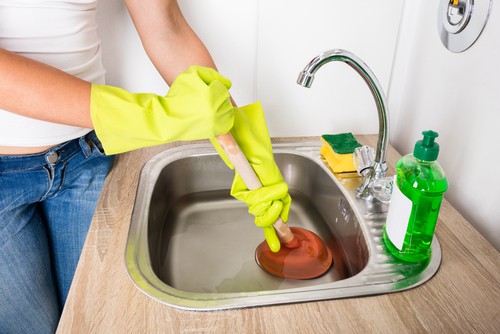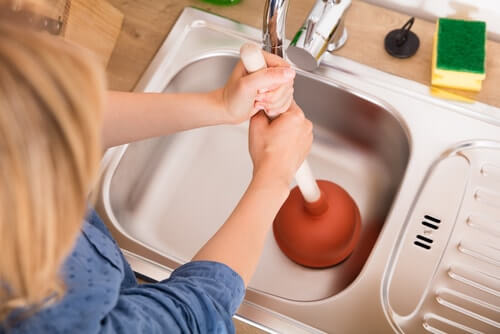Emergency Plumbing Tips: How to Manage Issues Until Assistance Arrives
Emergency Plumbing Tips: How to Manage Issues Until Assistance Arrives
Blog Article
What're your beliefs about Expert Tips for Emergency Plumbing Repairs?

Plumbing emergency situations can strike at any time, triggering tension and possible damage to your home. Whether it's a ruptured pipeline, a clogged up drain, or a leaking tap, knowing exactly how to take care of the situation up until a specialist plumber arrives can conserve you from further complications. This short article supplies necessary emergency situation pipes ideas to aid you minimize damage and restore control throughout a pipes crisis.
Turn Off the Supply Of Water
The very first step in any plumbing emergency is to turn off the water system. For localized issues, such as a leaking faucet or toilet, shut off the valve near the component. When it comes to a significant leakage or ruptured pipe, situate your home's major water shut-off valve and turn it off instantly. Understanding the place of these shutoffs in advance can conserve beneficial time throughout an emergency situation.
Turn off Your Hot Water Heater
In particular emergency situations, such as a ruptured pipeline, it's important to shut down your hot water heater. This protects against getting too hot or damages to the system when water quits streaming. Shut off the power supply to the water heater (electric or gas) and let it cool down to avoid potential hazards.
Temporarily Stop a Ruptured Pipe
A burst pipe can lead to significant water damages in mins. To minimize the problem:
Call a professional plumbing professional promptly to attend to the problem completely.
Have an Emergency Situation Plumbing Set
Prepare a basic plumbing emergency kit to take care of small concerns properly. Your set should include:
Having these devices available can make a significant distinction in your capacity to handle emergency situations.
Unclog Drains Safely.
A blocked drain can be an aggravating and messy issue. Here's how to tackle it:.
If these methods do not work, avoid making use of extreme force, as it may get worse the obstruction.
Handle Overflowing Toilets.
An overflowing commode can create immediate disorder. Right here's what you ought to do:.
Address Little Leaks with Short-term Fixes.
Little leaks can promptly end up being substantial problems if left untreated. Use these short-lived fixes till professional aid arrives:.
While these fixes aren't long-term, they can aid minimize water loss and damage.
Take Care Of Frozen Piping Meticulously.
In colder climates, frozen pipes are a typical emergency. If you think a frozen pipe:.
Know When to Call a Professional.
While quick fixes can assist briefly, particular pipes concerns require immediate expert attention. Call a plumbing technician if:.
Immediately getting in touch with an expert ensures the problem is dealt with correctly and avoids more difficulties.
Protect against More Damages.
Taking quick activity to lessen damage can conserve you money and time in the future. Below's just how:.
Final thought.
Pipes emergency situations can be overwhelming, however with the right understanding and devices, you can manage the scenario properly till assistance gets here. By switching off the water, resolving small leakages, and utilizing momentary repairs, you can reduce damage and maintain your home safe. Remember, these ideas are short-lived solutions; always consult a certified plumbing to handle the root cause of the problem. Prep work and fast reasoning are your finest allies in any type of pipes emergency.
8 Helpful Tips for Managing Plumbing Emergencies at Home
If your plumbing system hasn’t failed once, wait for it because almost everyone has a story to tell. Sometimes, it could be simple emergencies such as a leaking pipe, a blocked cistern, or even a big burst pipe. In situations like this, you need to have some handy tips to save you some money and from possible damages.
Take care of minor issues early.
Sometimes, you could have avoided an emergency by taking proactive measures while it was still early. Some major plumbing emergencies can be a result of an ignored minor issue. We recommend that you have items like plumbing tapes and other related items. A plumbing tape can allow you to manage minor leaks before the plumber arrives.
Cut off the water supply.
This tip is essential in almost any type of leakage problem. For problems like minor leakages in the toilet or kitchen, turn off the supply that takes water to the affected pipes. If the leakage is a major pipe, you must shut off the supply valve to the entire building. This will help you avoid flooding your home and neighbors if you share a flat.
Know your plumbing system
Folks typically move into a new apartment without understanding the water supply around the building. This can prove disastrous if a water emergency arises and the plumber is far away. The previous tip will prove useless if you don’t practice this one. More importantly, know where your water shut-off valve is located – you’ll need that knowledge to prevent potential home floods.
Have some common handy tools
There are lots of plumbing emergencies that you can handle without hiring a plumber. That’s why you must keep some tools available always. Some tools that you can use to fix simple plumbing emergencies easily include plumbing tapes, screwdrivers, thread seal tapes, plungers, pliers, tape measures, and rubber gloves.
Insulate your pipes from cold
You’ll save yourself from many plumbing expenses if you protect your water pipes from the cold. This is because of the harmful effects that cold weather can have on your pipes. During winter, your pipes can burst from being overly expected to freezing temperatures. So, make sure insulators are there to keep the pipes working correctly.
Avoid practices that will clog your toilet.
Many people indulge in practices that can damage the plumbing system of the entire building. One of these is when they use their toilet to dispose-off garbage. They flush all kinds of things, such as paper towels, bandages, hairs, female sanitary products, etc., down the toilet. This will block your toilet in the long run, incurring unnecessary expenditures. Dump such waste in the trash instead.
Check your dials regularly.
Sometimes, there could be leakages in your home without noticing them in time. So, constantly monitor your water meter dial. If the dial is reading when there is nobody using water, this is an indicator that there is leaking. Check for leaks immediately. Call a plumber as soon as possible if you can’t find any.
https://www.constructionplacements.com/8-helpful-tips-for-managing-plumbing-emergencies-at-home/

I was made aware of that editorial about Expert Tips for Managing a Plumbing Emergency Until Help Arrives from an acquaintance on a different web page. Loved our content? Please quickly share it. Help another person check it out. We appreciate your readership.
Click Here Report this page